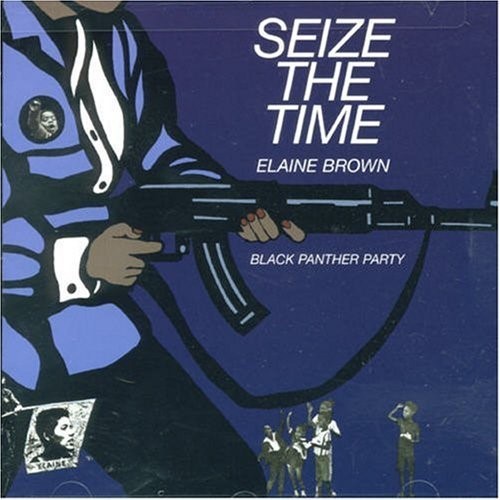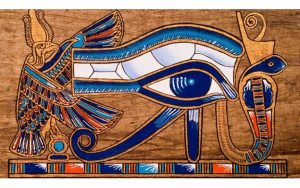Roaring permeated throughout the city of Los Angeles, California, as over ten thousand people joined for a political rally honoring the pending trial of Huey Newton. Elaine Brown sat at the top row inside of the L.A. Sports Arena, surrounded by waves of powder blue and black. Posters exclaiming, “Free Huey!” suffused the room and congested onto the streets.1 Huey Newton was one of the founders of the Black Panther Party and epitomized the urgency to end all forms of oppression. Members from the Party gathered in protest to spread awareness of the social injustices Black Americans faced, all while recruiting new members to help their cause. Finding herself in a state of indecisiveness, Elaine Brown debated whether or not she wanted to “be part of the solution or part of the problem,” as these words echoed the room.

By the end of April 1968, Brown made a decision that would soon change her life; she joined the Black Panther Party. Not knowing what she was getting into, Brown was introduced quickly to what the Black Panthers advocated for, their strict rules and protocols. This included the Eight Points of Attention, their Platform and Program, Rules, and the Ten Point Program.2 Black Panthers were instructed to follow these rules or else they risked being banned from the Party. They advocated for the equality and fair treatment towards Black Americans and minorities. A significant percentage of these racial groups fell into the categories of being underemployed, unemployed, and unemployable.3 It was important for racial minorities to speak out of their mistreatment. Black women were and remain one of the most oppressed groups in America and around the world. Unlike most men that joined the Party in hopes of proclaiming their “manhood” and respect from their peers, Brown joined the Party “for the duration.”4 In spite of Brown’s eagerness to be a part of this movement, it was soon very clear what a woman’s role in this organization was.
Women in the Black Panther Party were told that as a member they “might have to have a sexual encounter with ‘the enemy’ at night and slit his throat in the morning.”5 Although it was never stated in print, it was explicit to the women in the Party that their “sexuality–once a source of female empowerment” would be used as a “weapon against them” versus the role the men played who were seen as heroic figures to the public.6 Women were to use their bodies in order to gain information from “the enemy” and to produce the next generation of Black Panthers, no questions asked. Much like the government, men in the organization “feared the political potential of black women.”7 Women in the organization were never given leadership roles and were inducted because they looked “safe” and provided services for the men. This was detrimental to women’s self-esteem and self-worth. Black women faced the same forms of oppression that Black men faced, yet were still seen as subordinate to others of their own race. Women who face sexism tend to have a poorer sense of belonging, which hinders their ability to perform well in male-oriented environments and puts women at a greater risk of having mental health issues. Not only did Elaine Brown and many other women in the Black Panther Party have to worry about dealing with racism or mental health issues due to unequal treatment within the Organization, but also women also had to deal with hyper vigilance and carry that fear of just encountering sexism and sexual harassment from their peers.

However, this was not Brown’s first encounter with sexism in an oppressed group. Before Brown joined the Black Panther Party, she attended a meeting for the Karenga’s US Organization where they discussed freedom and the revolution. As food was being served, Brown and another woman she was with got in line and waited to be served. They were then confronted and told that they had to wait until their Brothers were served because “our Brothers are our warriors” and they “must be fed first.”8 Brown was appalled, but she did not feel threatened by these men. She knew her place in the Party and she understood that, like Black men, she too was oppressed for many of the same reasons. Brown was willing to violate “all the ‘sisterly’ rules” then, and now as she faced another form of oppression that the men in this organization did not. What men failed to recognize, was how much sexism can limit the ability and potential that women have in order to be as successful as men were during this time period. Women lacked access to the same opportunities and privileges that men were given, and this was why they were not seen as equal to men. Exposure to sexism and sexual harassment can have a psychological effect on women that allows them to be subordinate to men. This is a result of sexism continuing throughout generations and had become seen as a norm in society. Strong women like Elaine Brown understood that women and men are equal.

At this point in Brown’s association with the Black Panthers, she was very aware that the men within the group were equally as sexist as the white man were. Black women were seen as a threat, even to those already oppressed. Brown was told that “a woman in the Black Power movement was considered, at best, irrelevant.”9 This never stopped Brown; it only pushed her to rise to power and assert herself to the top of this organization. By the year 1975, Brown had succeeded in making a name for herself. She ran for a City Council position and became the first and only chairwoman for the Black Panther Party. She advocated for equal rights for Black minorities, especially Black women. In the United States, Black women are one of the most oppressed racial and social groups; “black women are unlikely to speak” out about their experience with harassment and violence because throughout history they have faced tremendous costs for doing so.10
Before this, Brown had never thought of herself as a feminist, as the word was always associated with a negative connotation and “was an idea reserved for white women.”11 “Feminist” was now a word that carried a great weight for who she was as a human. Sexism is a social construct that has been unconsciously taught; various forms of this inequality are imposed on women before they are even born. Although women in society have come a long way to become more equal to men, women are still considered minorities due to their lack of equal opportunities, power, and wage. However, it is vital for women to know that they are meant to be powerful, not submissive. They have potential and intelligence; women are not objects, and they should not be dismissed or overlooked. Elaine Brown is a significant figure to women of color and deserves recognition for rising to power in a male-dominated organization. Sexism will not end today, or even tomorrow, as long as there are people who continue to push the boundaries that society places on women, we will be one step closer to equality. It is women like Elaine Brown, who are considered double-minorities, that break through all stereotypes and barriers in order to advocate for the greater issues that women across the world have faced throughout generations.
- Elaine Brown, A Taste of Power: A Black Woman’s Story (Brantford, Ont.: W. Ross MacDonald School Resource Services Library, 2009), 126. ↵
- Elaine Brown, A Taste of Power: A Black Woman’s Story (Brantford, Ont.: W. Ross MacDonald School Resource Services Library, 2009), 131, 134-135. ↵
- Elaine Brown, A Taste of Power: A Black Womans Story (Brantford, Ont.: W. Ross MacDonald School Resource Services Library, 2009), 136. ↵
- Elaine Brown, A Taste of Power: A Black Womans Story (Brantford, Ont.: W. Ross MacDonald School Resource Services Library, 2009), 137. ↵
- Elaine Brown, A Taste of Power: A Black Womans Story< (Brantford, Ont.: W. Ross MacDonald School Resource Services Library, 2009), 136. ↵
- Marquita R. Smith, “Afro Thunder!: Sexual Politics & Gender Inequity in the Liberation Struggles of the Black Militant Woman,” Michigan Feminist Studies, no. 22 (Fall 2009): 63. ↵
- Marquita R. Smith, “Afro Thunder!: Sexual Politics & Gender Inequity in the Liberation Struggles of the Black Militant Woman,” Michigan Feminist Studies, no. 22 (Fall 2009): 67. ↵
- Elaine Brown, A Taste of Power: A Black Womans Story (Brantford, Ont.: W. Ross MacDonald School Resource Services Library, 2009), 109. ↵
- Elaine Brown, A Taste of Power: A Black Womans Story (Brantford, Ont.: W. Ross MacDonald School Resource Services Library, 2009), 357. ↵
- Rachel Zellers and Naava Smolash,“If Black Women Were Free (Cover Story),” Briarpatch 45 (5): 9. ↵
- Elaine Brown, A Taste of Power: A Black Womans Story (Brantford, Ont.: W. Ross MacDonald School Resource Services Library, 2009), 367. ↵



19 comments
Andrea Laguna
Extraordinary article! Before reading this article, I did not know or heard about the Blank Panther Party. This was very informative. The role of women and their sexism left me speechless. It is just heartbreaking all the social injustices Black Americans faced. Elaine Brown should be known as a positive influential women that fight for every women.
Camryn Blackmon
Hi Mia,
Your article was extremely informative by giving an overview of the Black Panther Party with its goals and how women were involved. I think you brought up some relevant points to the sexism during the Black Power Movement and how this issue is still prevalent with the rights and issues of Black people. I know that the Black Panther Party did expand their organization to fight the intersectional oppressions that black women face. Still, it is significant to acknowledge that Black Panther Party started as a program to empower and protect black men especially seeing as there is still a need for this today.
Maya Simon
The Black Panthers will forever go down in history as the most impowering group that worked to advocate that Black Lives Matter. The role of woman in the Black Panther Party and the sexism is really shocking though, they had good intentions to advocate but they still had a little more discrimination for men the men ran the show for the Black Panthers Party. The woman not only had to suffer racism but also sexism and sexual harassment is just a tragic but awaking moment. This was a great article and it gave me more insight on the issues that were actually going on inside the heart of the Black Panther Party.
Melissa Garza
The sexism in the Black Panther party was absolutely mortifying. This was a very informative article and a very important story to be told. I did not even know of the horrors that took place in the party itself. Though it was an organization that was necessary in fixing the social injustices towards African Americans, I am now aware they had many downsides when it came to the social injustices of women in America.
Lesley Martinez
The Black Panther Party’s mission to spread awareness of the social injustices Black Americans faced can divert from the sexism that female members faced. The strict rules and protocols such as the idea of women using their bodies to gain information from “the enemy” and to produce the next generation of Black Panthers are outrageous. For Elaine Brown and other women apart of the party to have faced not only racism but also sexism and sexual harassment is tragic. Nonetheless, Brown’s dedication to rise to power by running for a City Council position and becoming the first chairwoman for the Black Panther Party is inspiring. Great article!
Arsema Abera
I have heard about the black panther association several times but never came to my attention that the members were exclusive of the women in the team. It was an interesting article and was informative of how men treated women back in the day. It was also ironic to hear that they were fighting for their right when they were neglecting the same rights to their own members. Elaine Brown is one of a kind and is indeed an inspirational woman in breaking the boundaries of what it means to be a double minority.
Rahni Hingoranee
The role of women in the Blank Panther Party and their sexism is truly shocking. The Panthers had good intentions but unfortunately still had the close-mindedness of men during the time. This is a unique perspective to take on the political group. Elaine Brown only decided to join the party for change and had to bear witness to the bad parts of it.
Alexander Avina
I wasn’t fully aware of the ideology and mission of the Blank Panther Party. It was interesting to learn more about what led these people to be a part of the moment and the objective of their endeavors. It is always good to look at the thought process behind people’s actions. I definitely learned more about this movement from reading this paper. I really think that the information that you used was very helpful in understanding this movement.
Addie Piatz
Before reading this article I feel like I have heard her name before but I did not know who she was until now. I have however, heard of the black panther party and knew there was woman within the organization but I did not know there was sexism with in it especially with all of the external negativity they all were already receiving. This article was very informative and interesting and I enjoyed reading it.
Cassandra Sanchez
I have never heard about the Black Panther Party and thought this was really interesting. One thing that struck me about this article was how big of a problem sexism was at the time. Elaine Brown was a very inspiring person because she saw the true potential that women carried throughout the hardships she faced. She was such a driven individual who worked hard to make a difference and speak out for those who couldn’t.